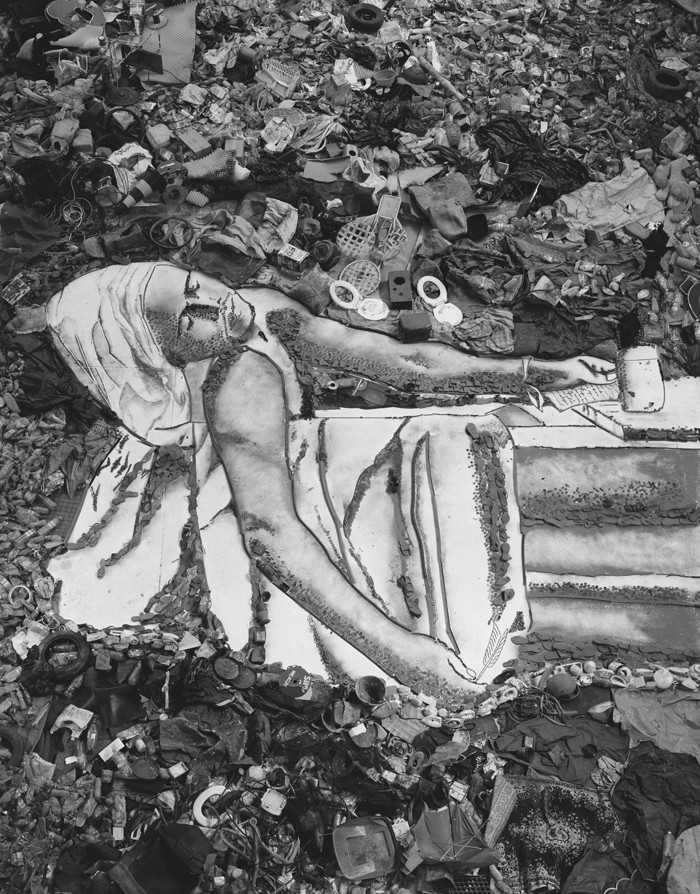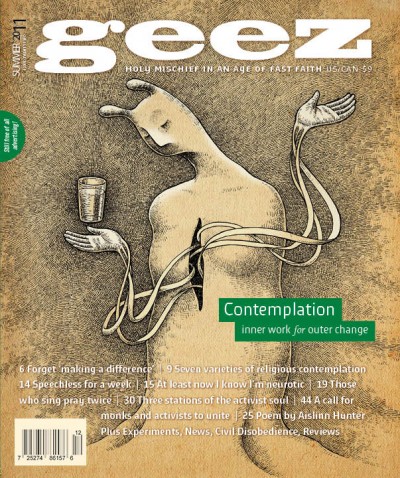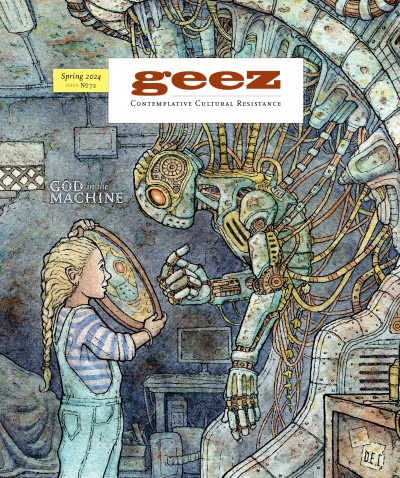Review: Wasteland

Portrait made of garbage Credit: From Wasteland.
Wasteland
Directed by Lucy Walker; Co-Directed by Joao Jardim and Karen Harley
Almega Projects, 2010
In 2007, world-renowned artist Vik Muniz set about to change the lives of a group of people through art by integrating the materials they handle every day. Early in his career, Muniz photographed the children of sugar plantation workers and drew their portraits with the same sweet material that defined their parent’s poverty. Muniz admits his career was originally driven by a material ambition to escape the poverty of his childhood in Brazil. After a lot of success, Muniz decided to give back.
He discovers Jardin Gramacho, Brazil’s largest landfill, where ton after ton of waste from the “millionaire’s mansion mixes with the garbage from the poorest favella.” Muniz invites a group of seven catadores, the recycling pickers who work the landfill, to create their own portraits with discarded paper, plastic and glass. Without an official recycling system, the pickers provide an essential service, removing more than 200 tonnes of recyclables each day, thus earning a meagre income while diverting waste from the overflowing landfill.
Director Lucy Walker and her co-directors reveal the film’s characters and story development without voiceover narration. The filmed conversations expose the workers’ resilience and the unfolding artistic opportunity that may transform their lives. It’s a refreshing directorial decision. Too often, documentaries about poverty fail the voices of the poor.
In Wasteland, we hear who we should hear – the pickers tell their own stories in their own words. Audiences may question the authenticity of Muniz’s motivation. Is it exploitative and opportunistic for a famous artist to make art with poor people? The reactions and outcomes expressed by the pickers suggest that’s not their experience.
The pickers join Muniz throughout the creative process that takes shape in a large warehouse-turned-makeshift studio. With every threadbare shoe, broken bottle, and crushed carnival costume, they create their images. They fill in the spaces, lines and shadows of their faces projected on the concrete floor using recyclables in an act of artistic refurbishment. Their daily work shifts from recycling and surviving, to creating and thriving.
The pickers triumph when one of their finished portraits is chosen for sale at auction in London and all the portraits are exhibited at the Museum of Modern Art in Rio. The newly celebrated artists raise over $250,000 to support the Gramacho picker’s association. As the credits roll, we learn that the association built a library and will support its members’ transition out of the landfill when it closes in 2012. All of the workers who worked with Muniz left Gramacho to change their lives – or did they leave because their lives were changed?
Wasteland inspired audiences and impressed critics, earning an Academy Award nomination at this year’s Oscars. The portraits show the faces and expressions of the pickers, but up close we can make out the component parts: plastic bags, bottle caps and green glass. Overhead shots from the sky show Gramacho is vast, destructive, and inhumane. Another picture emerges through the human story, in the lives of those who rescue recyclables from waste and lift themselves out of tragedy. “Poor is the trash of the poor,” declared a picker. Their redemption is rich.



Sorry, comments are closed.